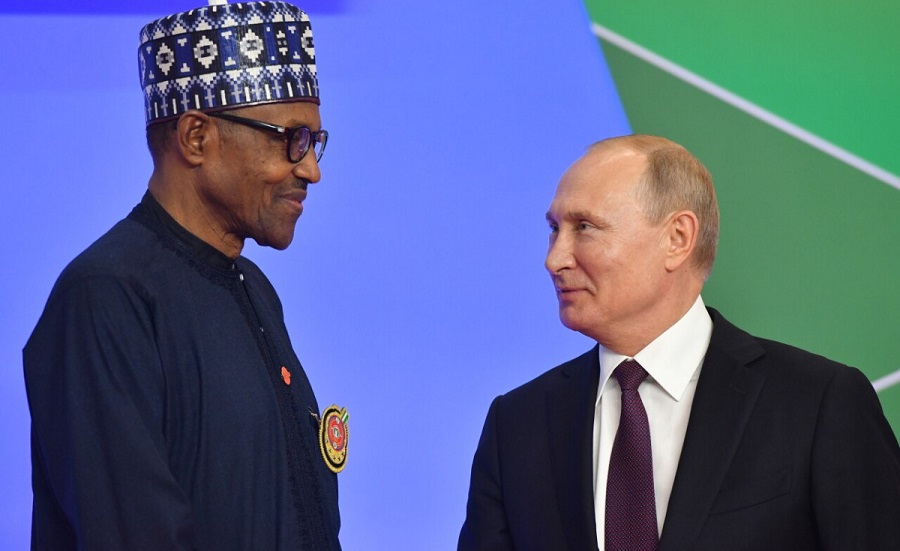Wetin Concern Nigeria with Russia?
In English, we can translate the above question to mean, how does the war between Russia and Ukraine affect the price of garri in the market?
Valid question.
The world, as we are constantly reminded, is a global village. A Nigerian can invest in a company based in San Francisco using an app developed by an Indian working in Finland, paying with United States dollars. Nigerian students are studying all over the globe, and Nigeria is a major importer of foreign goods and services while exporting her local goods all over the world.
So does the war in Eastern Europe influence the price of processed garri in Abia? I think so.
First, some background, Russia has invaded Ukraine, which is beyond the scope of this paper. The world’s reaction, as evidenced by the UN General Council resolution is a call for the fighting to stop. America and many nations have imposed crippling sanctions on Russia. Apart from the normal sanctions on trade, Russian ships and planes have been denied access to most of the skies and ports in Europe. The plan seems to completely isolate and cut off Russia from international trade to pressure them into withdrawing from Ukraine. Russia for instance has been picked off the SWIFT network which acts as a messaging network used to securely transmit information. This makes it harder for anyone living in Russia to send and receive remittances, including Nigeria. However, let’s drill down into the larger effects of the war in Eastern Europe.
OPEC+ Trade
Nigeria to Russian trade is not a lot but it’s important in many elements. Russia’s main exports to Nigeria, according to trading economics are Cereals (Maize), Iron and Steel, Mineral fuels and Fertilizer. The total value of these exports from the latest update in 2020 is put at about $423million using the United Nations COMTRADE database on International Trade. Nigeria on the other hand exports. To put it in context, China’s exports to Nigeria were $16 billion in 2020. Ukraine exports to Nigeria are far lower at about $69 million in 2020 and consist mainly of iron and steel and surprisingly sugar. Nigeria exports to Russia are minuscule, mostly live trees, plant and flowers, oilseeds and edible fruits. This trade is valued at about $2.36 million.
Russia and Ukraine are large wheat exporters, Nigeria imports a lot of wheat. The President of Nigeria in 2021 at the inauguration of the Brown Revolution of Wheat in Plateau State said “Nigeria spends over $2billion on the importation of wheat yearly”. The governor of the Central Bank of Nigeria, Godwin Emefiele said, “Nigeria produces only 1% of an estimated 5-6million metric tonnes of wheat consumed annually”
In summary, Nigeria cannot deploy import substitution to correct the wheat gap of over 5million tonnes, she must import. With Russian and Ukrainian imports suspended, the price of wheat futures has shot up 6% in one week! The implication is bread, pasta and all wheat-based goods will see a rise in prices. If pasta prices rise, Nigerians will run to the nearest substitute including cassava-based meals like garri, pushing up the price. Food makes up about 50% of the Nigerian Consumer Price Index, thus any shock to food prices will see food inflation go up and drag core inflation with it. In essence, a war in Eastern Europe that affects the price of grain means a rise in inflation in Nigeria.
Crude Oil
Russia is a member of the OPEC + cartel. A cartel is formed to control the supply of a commodity to influence its selling prices. Even before the war broke out in Ukraine, oil prices had been elevated due to higher demand as the world exists a covid included inflation but with lower supply as the West seeks to reduce their use of fossil fuels. OPEC has not increased supply to dampen prices, why should they?
Ordinarily, these higher prices should translate to a boom for Nigeria foreign exchange revenues but Nigeria’s production has stalled. The table below from OPEC Monthly reports show a dip in Nigeria’s oil production from 2020 to 2021. Even though oil output rose in 2022 January, it’s still below 2020 levels, in an environment of higher oil prices.
However how impressive the output for January 2022 of 1,399, it‘s far below the 2022 budget assumptions. This translates to lost revenues for Nigeria.















